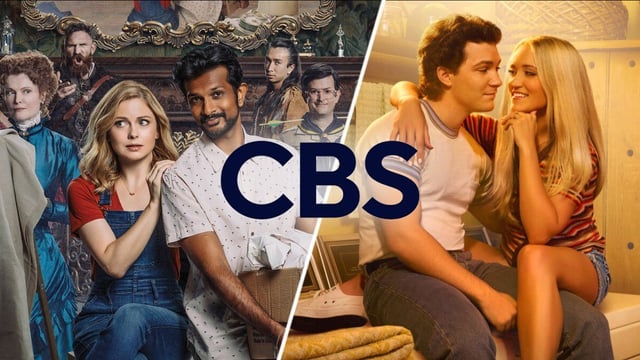
The Enduring Charm of the Afterlife: Why Ghosts Keeps Haunting CBS
CBS's renewal of "Ghosts" for two more seasons is more than just a testament to a successful sitcom; it's a recognition of the show's unique ability to tap into a fundamental human fascination: the afterlife. While the premise – a young couple inheriting a haunted mansion – might seem tried and tested, "Ghosts" breathes fresh life into the supernatural genre by blending sharp writing, a diverse ensemble cast, and a genuinely heartwarming exploration of connection, acceptance, and the enduring power of shared experience, regardless of one's earthly status.
The show's brilliance lies in its ensemble of spectral residents. Each ghost is a distinct and fully realized character, representing a different era and a different walk of life. From Sasappis, the sardonic Native American whose quick wit masks a deep-seated loneliness, to Flower, the blissfully naive hippie whose free spirit transcends the boundaries of time, each ghost embodies a specific aspect of the human condition. The contrast between their personalities and their historical context provides fertile ground for comedic clashes and insightful social commentary. The priggish Revolutionary War officer, Isaac, grappling with his suppressed sexuality and yearning for historical relevance, serves as a particularly poignant example, showcasing the show's ability to blend humor with genuine emotional depth.
Beyond the laughs, "Ghosts" resonates because it explores universal themes of belonging and acceptance. For Sam, the living woman who can suddenly see and communicate with the ghosts, the mansion is initially a chaotic and overwhelming intrusion into her life. However, as she gets to know the spectral inhabitants, she begins to see them not as burdens, but as individuals with their own stories, regrets, and desires. She becomes their confidante, their advocate, and, ultimately, their friend. This transformation underscores the show's message that even in the most unconventional of circumstances, meaningful connections can be forged.
The ghosts, in turn, learn to accept each other and, more importantly, to accept themselves. Trapped in the same space for decades, sometimes centuries, they are forced to confront their past mistakes and unresolved issues. Through their interactions with Sam and each other, they find a sense of community and purpose that eluded them in life. The show subtly suggests that even in the afterlife, personal growth is possible, and that forgiveness – both of oneself and of others – is essential for finding peace.
Furthermore, "Ghosts" subtly critiques modern society by juxtaposing it with the perspectives of the ghosts. Their observations on contemporary issues like technology, social media, and shifting cultural norms often provide a humorous and insightful commentary on the absurdity of modern life. Watching them grapple with Wi-Fi passwords, online dating, and the concept of "influencers" is not only funny but also forces viewers to reflect on their own relationship with these aspects of contemporary culture.
Ultimately, the success of "Ghosts" lies in its ability to blend the supernatural with the relatable. It acknowledges the inherent human curiosity about what happens after death, but it doesn't rely on cheap scares or sensationalized depictions of the afterlife. Instead, it focuses on the enduring power of human connection, the importance of empathy, and the possibility of finding joy and meaning even in the face of mortality. By offering a lighthearted and genuinely heartwarming exploration of these themes, "Ghosts" has captivated audiences and earned its place as a must-watch sitcom, ensuring that its spectral residents will continue to haunt our screens for at least two more seasons of supernatural fun.